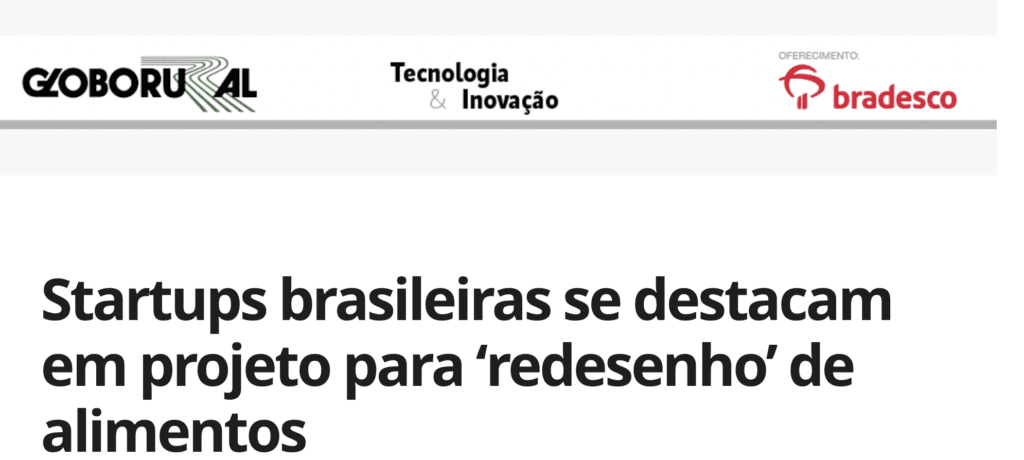Redesigning the Future of Food: Brazilian Startups Innovate with Circular Economy and Biodiversity

The article published by Globo Rural, reinforces the work of the four Brazilian companies selected by the Ellen MacArthur Foundation, including Horta da Terra, which proposed products made with raw materials from national biodiversity and grown regeneratively by small and medium-sized producers.
According to the article, in a world increasingly aware of the need for sustainable practices, the food industry is at a crucial moment of transformation. The Great Food Redesign, an initiative of the Ellen MacArthur Foundation in partnership with other renowned institutions, emerges as a beacon in this scenario, driving Brazilian startups to develop innovative and regenerative products.
Brazilian Biodiversity at the Center of Innovation
Of the 70 organizations selected globally for the final phase of the project, four Brazilian startups stood out for their promising proposals, which combine the appreciation of the rich national biodiversity with the circular economy.
Japi Bebidas Fermentadas presents a line of carbonated soft drinks inspired by Brazilian biomes, using wild bacteria present in ginger peel for fermentation. Nutricandies innovates with Brazil’s first fat-free chocolate, using cocoa by-products that are usually discarded, reducing waste and offering a nutritious and tasty product.
Horta da Terra goes further, creating health shots from dehydrated and lyophilized Amazonian ingredients (such as jambú, ora-pro-nóbis, amazonic chicória, vinagreira (hibiscus), taioba, açaí, marapuama and graviola leaf) preserving their nutrients and promoting syntropic agriculture in partnership with local producers. The dehydration and lyophilization method is the same developed by NASA, with the aim of reducing the volume of the fruits, while maintaining 98% of their nutritional quality.
Part of the ingredients is grown on its own 37-hectare farm, located in Santo Antônio do Tauá, Pará, 37 hectares, and part is purchased from partners in the region, all bought for three times the market value.
According to Bruno Kato, CEO & Founder of the company, the idea is to have a direct economic impact to show how investing in Brazilian diversity can be beneficial. “We share knowledge about syntropic agriculture and in return, not only do we improve commercial conditions but also encourage more producers to enter this chain, thinking about the environment and contributing to a greener economy.”
Completing the team, Mahta presents a shake with 12 Amazonian superfoods, including by-products such as Brazil nut cake, cupuaçu and cocoa, seeking a positive impact on the environment, society and consumer health.
More Than Products, a New Paradigm
The initiatives of these startups are not limited to the development of innovative products. They represent a new paradigm for the Brazilian food industry, where sustainability and the appreciation of biodiversity are at the heart of operations.
By using regenerative raw materials from small and medium-sized producers, these companies strengthen local communities, boost the circular economy and reduce the environmental impact of food production.
A More Sustainable and Delicious Future
With the support of the Carrefour Group, which will offer free space on its shelves for six months, these innovative products will have the opportunity to reach a wider audience and contribute to the transformation of the food system in Brazil.
The Great Food Redesign initiative demonstrates Brazil’s potential to become a global leader in the production of sustainable, nutritious and tasty food. The selected Brazilian startups are inspiring examples of how innovation and collaboration can drive a greener and more prosperous future for all.